2000 For Gamers
Article - we recap an interesting year for gaming
The year 2000 turned out to be quite an interesting one for gamers, although most of the excitement came in the tail end of the year. As part of our year end wrap-up, today we take a look back at some of the key events and trends that shaped the year for gamers...
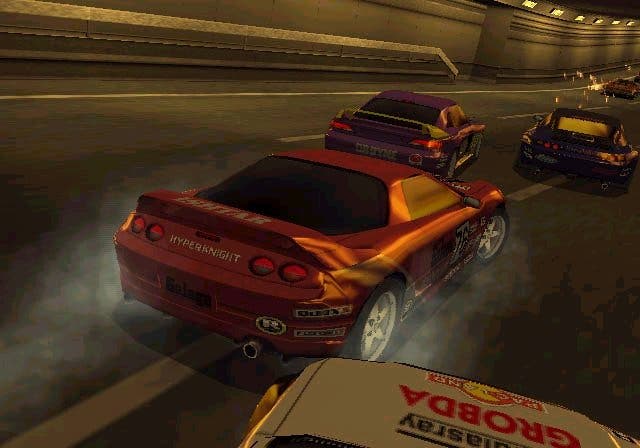
Subject To Availability
One of the biggest anti-climaxes of the year came just over a month ago with the eagerly anticipated European launch of the PlayStation 2. As we had predicted, the launch was something of a flop thanks to the pitiful number of PS2s available in Europe. At best the UK will have got just 165,000 by the end of the year, while some European countries received only 5,000!
Most people had realised by November that the initial allocations had all sold out weeks earlier thanks to the pre-order system, making this one of the least exciting console launches in living memory. Although a few sad individuals camped outside stores or drove into town in the middle of the night to get their console first, everybody who was going to get one already knew that they had one reserved for them, and the rest of us knew that we were going to have to wait anything up to four months before the console became available again in any great numbers.
The general feeling of antipathy towards the launch was only increased by the uninspiring selection of games available on day one. While there were a few genuinely fun titles (SSX, Smuggler's Run, Timesplitters and Dynasty Warriors 2 are the favourites here at EuroGamer), most of the launch line-up was made up of sequels and cash-ins, many of which failed to shine. No doubt the PlayStation 2 will come into its own next summer when it becomes available in stores and more ambitious games start to appear, but in the meantime it left most of us rather unimpressed, and failed to give the troubled gaming industry the shot in the arm it had been hoping for.
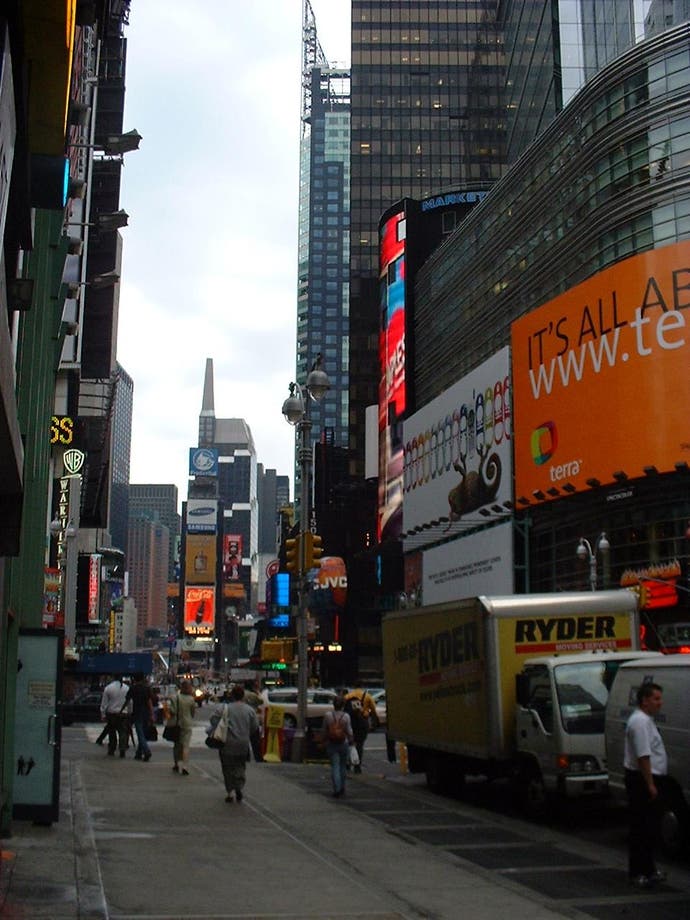
Bungee Jumping On The Stock Exchange
The gaming industry's problems had really started to bite back in the spring when the "dot com boom" turned into a rout, with many companies losing half their stock value virtually overnight. Publishers wrote off their poor financial results, claiming that this was a "transitional year", and that punters were holding off buying new games and consoles while they waited for the release of next generation hardware such as the PlayStation 2.
A quick look at the figures soon revealed that this was rubbish - sales were continuing to climb, but most companies were losing money hand over fist. The Gathering of Developers was bought out by Take 2, and British publisher Eidos almost became a casualty of the crash when French giant Infogrames tried to buy them out. Eidos lived to fight another day and now seem to be back on track, largely thanks to worryingly high sales of "Who Wants To Be A Millionaire". Bruno and the boys then turned their attentions to Hasbro, buying the company's computer games division and web portal for somewhat less cash than Hasbro had wasted just months earlier setting up the rather extravagant website.
Another symptom of the crisis in the gaming industry was the collapse of the GameFan Network, formerly host to prominent websites such as Voodoo Extreme and parody site Something Awful. GameFan's collapse left many of its hosted sites desperately searching for new servers, while most of its staff searched for new jobs. We can expect more of the big hosting services and ad networks to shut down next year, and IGN has already ditched many of its hosted sites in an attempt to cut costs. With many of the gaming community's top sites relying on companies such as IGN and UGO for hosting and/or advertising revenue, the effects could be widespread.

Further Down The Spiral
Game developers were having a hard time of it as well, and the year 2000 seems to have put the final nail in the coffin of the independent development studio. Cutting edge game development is simply becoming too expensive, and few developers will be able to afford to stay independent for much longer.
Bungie was swallowed by the beast of Redmond, Cavedog was put down by its owners, Ion Storm slipped deeper into debt with publisher Eidos, and just a couple of weeks ago reports emerged that Close Combat developers Atomic Games had gone bust. Even the legendary Looking Glass Studios, responsible for classic titles such as Thief, System Shock, Terra Nova and Ultima Underworld, went down with all hands. The year ended with news that Microsoft had bought out Digital Anvil, which had ironically been founded just a few years earlier by Chris "Wing Commander" Roberts and friends as an escape from the corporate culture of Electronic Arts. The failure of "Starlancer" to light up the charts left them in trouble, and with three other highly ambitious titles in development they simply ran out of money.
Modern hardware and consoles are becoming so advanced that making games which take full advantage of their capabilities requires bigger teams, longer development cycles and more money than ever. It is likely that within a few years most development will be done in-house by teams run directly by the publishers, and that only a handful (probably including EA, Infogrames and Take 2) will survive.
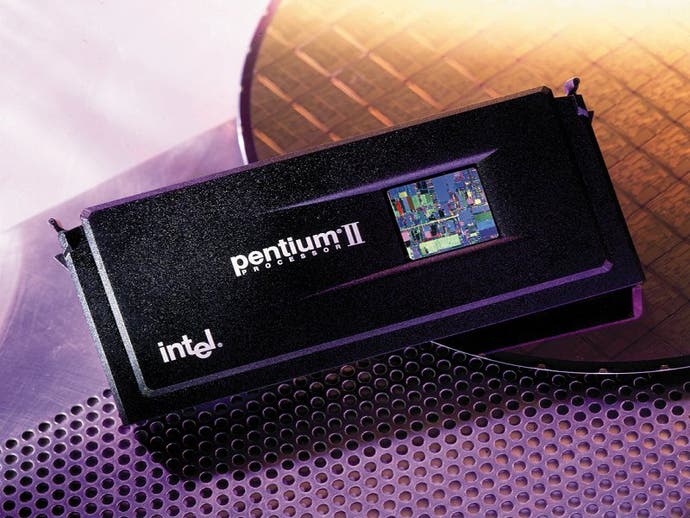
Hardware
There were also problems for the companies which produce the hardware that we play games on, and again it looks like only a handful of big companies will survive the consolidation going on in the industry at the moment. Amongst the most prominent casualties was Japanese giant Sega, which announced that the Dreamcast is likely to be its last console. The company will instead be concentrating on game development in future, leaving Nintendo, Sony and Microsoft to fight over the console market.
Perhaps the biggest disaster of the year in the hardware industry though was the collapse of graphics card manufacturer 3dfx. Their Voodoo cards helped to spark the 3D gaming revolution, but a lack of innovation and constant delays in releasing new products left them struggling to keep up by the end of 1999. A series of disappointing financial results and ill-advised buy-outs of STB and Gigapixel left them plunging deeper and deeper into the red, and in December 2000 they finally called it quits, selling their core technology and brand names to arch-rivals NVIDIA. It now looks likely that NVIDIA will totally dominate the PC graphics card market in coming years, with only ATI in any real position to compete with them.
It's not all doom and gloom though, as the year 2000 saw the arrival of first unmetered internet access and then broadband connections here in the UK. After years of procrastination and delaying tactics designed to preserve their profit margin, monopolistic telecoms operator BT finally rolled out ADSL towards the end of the year, while NTL launched their long overdue cable modem service in many areas. ADSL particularly is still rather expensive compared to similar services in other countries, but it is at least available here at last. What the hell am I doing in this god forsaken country?
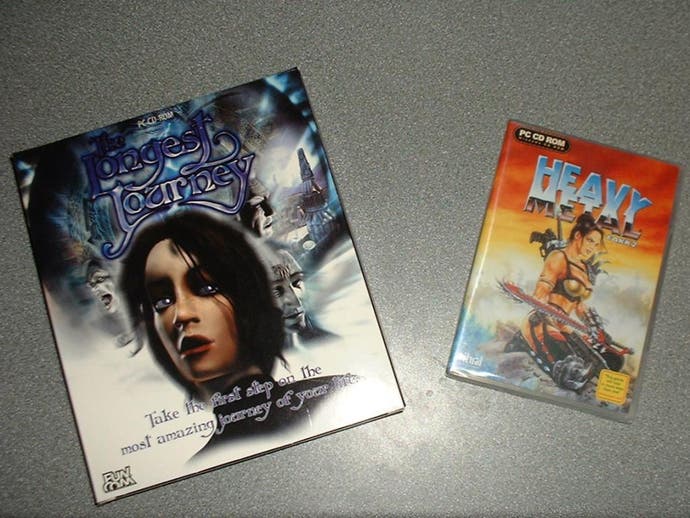
Plastic Fantastic?
The European gaming industry did show some vague signs of sanity this year, with most publishers dumping the out-sized cardboard boxes of yore in favour of standard DVD cases. Amongst the pioneers were Take 2, Electronic Arts and 3DO, with the rest likely to follow suit next year.
Although claims from the gaming industry that the new plastic boxes are easier to recycle than cardboard seemed rather far-fetched, they do have some rather obvious advantages. While the old boxes were full of bits of cardboard to stop the slim manual and CD jewel case nestled inside the voluminous packaging from rattling around while in transit, the new DVD style cases are neat and compact, allowing retailers and gamers alike to pack more of them on to a given shelf. This also makes them cheaper to transport, and the cases are themselves slightly cheaper to manufacture.
Sadly these savings aren't passed on to the publishers or consumers, but merely put more money into the pockets of the retailers that stock the games. The industry is still long overdue a radical shake-up in the way it works, but this is at least one small step in the right direction...
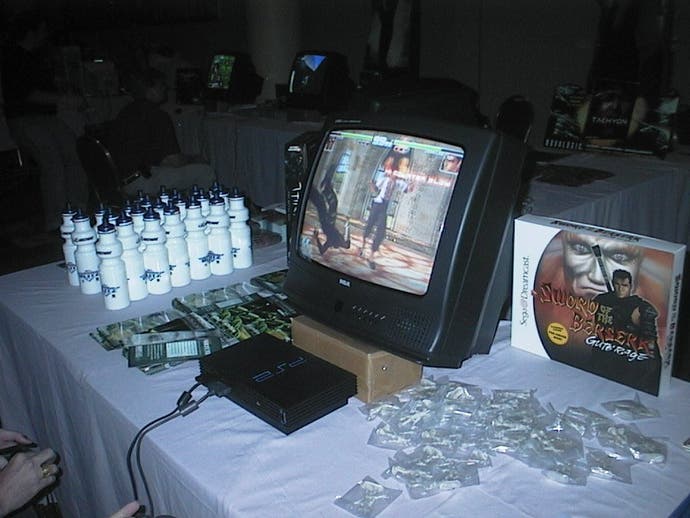
Professional Help
There was also mixed news for professional gamers this year, with this odd new sport continuing to grow at a frightening pace. The Razer-CPL tournament in Texas back in April was the biggest of its kind to date, with hundreds of participants and $100,000 in prize money up for grabs, but since then things have been a little rocky.
The Babbages CPL event in December mustered less than 256 players for its Quake 3 duel tournament, and a combination of buggy software and slack umpiring caused Swedish number two seed Blue to take an early exit from the competition. The controversy reached boiling point in the days after the event ended, when recordings of the game clearly showed some shots passing straight through his opponent without causing any damage! After a rather half-hearted attempt to cover up the problem, the CPL admitted their mistake, apologised to Blue and granted him a higher position than the one he had ended up with. It is just unfortunate that the referee did not spot the problem earlier, despite Blue pointing it out during the game, making a re-match impossible.
Meanwhile Korean-backed Battletop had something of a baptism of fire when they tried to run a string of events across America and Europe. Some of these went reasonably smoothly, but others were little short of a fiasco - the London event ended so late that the company supplying the power was threatening to take away the generators and plunge the venue into darkness by the time the finals got underway! In fact it was only thanks to the above-and-beyond efforts of the EuroGamer team (who were up until the early hours of the morning before the event rewiring the entire network) that it took place at all...
Elsewhere the EuroGamer crew ran what was probably the world's biggest ever Unreal Tournament competition (in Nottingham of all places), while Dutch group Clanbase ran their first EuroCup, involving some of the best Quake 3 clans from across Europe. And after a series of disasters, the CPL's European division was put under new managament and organised a successful event in Germany this winter. Pro-gaming has finally come to Europe, and we are looking forward to bigger, better and more frequent events next year.
Conclusion
And that's it! The year 2000 is over, and we can all look forward to 2001. No doubt we will see more developers and publishers going to the wall, NVIDIA releasing a GeForce 3 Mega Turbo Pro (or will they call it a Voodoo 6?), more pro-gaming events taking place around the world with ever bigger prize funds, and the long overdue arrival of the Gameboy Advance encouraging a new boom in pocket snooker. Probably.
One thing that we aren't expecting next year though is the release of the Xbox - Microsoft have just announced that it won't reach Europe until early 2002. Bah, humbug!
-

